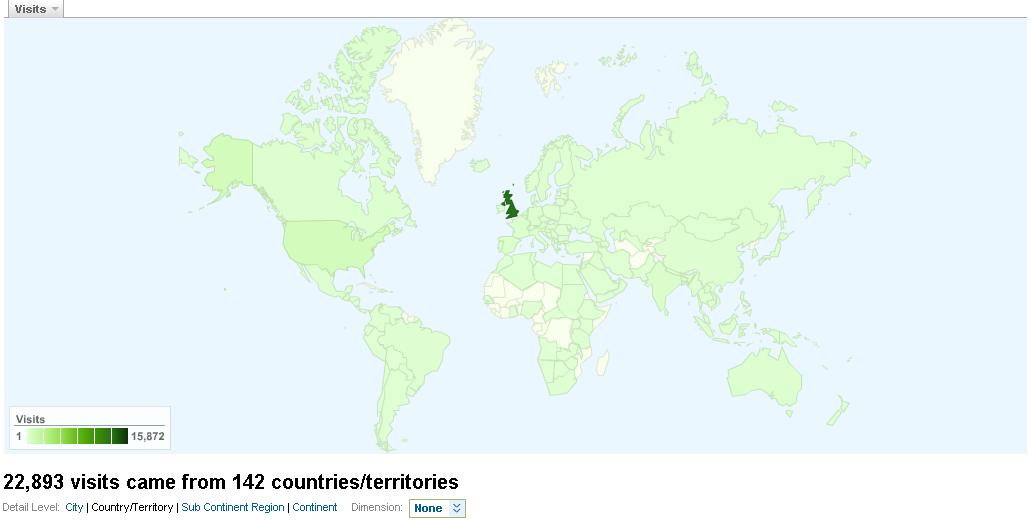 The British Sociological Association have announced the Phil Strong Memorial Prize for the Academic year 2011-12. It is anticipated that there will be one prize to the value of £1200. The purpose of the prize is to contribute to the advancement of medical sociology by supporting post-graduate research in medical sociology.
The British Sociological Association have announced the Phil Strong Memorial Prize for the Academic year 2011-12. It is anticipated that there will be one prize to the value of £1200. The purpose of the prize is to contribute to the advancement of medical sociology by supporting post-graduate research in medical sociology.
The prize was established in memory of Phil Strong (1945-1995) one of the post-war generation of sociologists who influenced the development of medical sociology in the UK. Phil’s work combined rigorous empirical analysis with sociological imagination. He was one of the foremost exponents of Goffman’s ideas, but he did not confine himself to interactionism, or indeed to sociology, in his reading or thinking which drew on philosophy, political science and literature. His empirical research included important studies of the clinical encounter, NHS reforms, and the social history of AIDS. In memory of his contribution as an essayist, researcher and teacher this prize has been established to support postgraduate research in medical sociology.
Overview
Applicants must show that they are low waged or unwaged and not receiving a full or part time research studentship that is intended to cover maintenance and research expenses for the duration of study, that they are working in the field of Medical Sociology and that they are registered for a higher degree at a British University or other recognised British research institution, with a named supervisor who is a member of the BSA.
Applications must be submitted to arrive no later than 17 August 2012. Incomplete applications and applications received after this date will not be considered. The draw and announcement of the winner for this year’s prize will be made at the Medical Sociology Study Group’s AGM during their Annual Conference.
Conditions of the award of the Phil Strong Prize
A draw for the prize will be held each year at the Medical Sociology AGM and an immediate announcement of the recipient made. The money will be paid by cheque to the sponsoring institution that will be responsible for administering and accounting for the money, and making such information available to the Committee on request. Departments that do not comply with the conditions listed above will not be allowed to enter students for the prize in the following five years.
Students receiving the Phil Strong prize must produce a short report (approximately 1000 words) on how the money has been used. This should include (1) a brief overview of their doctoral research including the background, aims and objectives, methods and progress to date including a summary of any analysis or conclusions (2) an account of the activities supported by the Phil Strong Memorial Prize, including any reflections on how this enhanced the study or the recipients’ sociological development. This should be submitted to the convenor of the BSA Medical Sociology Study Group within three months of the completion date specified in the student’s application. This will be published in Medical Sociology Online.
The recipient should keep the convenor of the Medical Sociology Committee informed should there be any problems associated with the use of the money. The prize money may not be used for any other purpose than that for which it is granted. Should the money not be used within one year of the time from which was awarded, it shall be returned to the Medical Sociology Group. These conditions may be varied by the Medical Sociology Committee, subject to the approval of the AGM, to optimise the outcome of the Phil Strong Memorial Prizes and enhance the good name of Medical Sociology.
*PLEASE NOTE*
The Phil Strong Prize Money may not be used for:
- The material production of a thesis (e.g. photocopying and binding). The BSA has a support fund to which students can apply for this;
- Courses which should be offered by the Department/Unit as part of normal provision for postgraduate or undergraduate students (e.g. standard courses in research methods);
- Return fares for an overseas student, registered in Britain, to return home. Exceptions may be made if there is strong evidence of how this would advance the study;
- Materials and equipment such as books, computers (including access to the internet) and tape-recorders which should properly be supplied by the sponsoring institution; and
- Any purpose which is unlawful.
How to Enter
To enter, complete the application form and return as an email attachment to the BSA Office. Alternatively, you can fax your application to 0191 383 0782 or post to the address on the application form.
Applications must be received no later than 17 August 2012. Receipt will be acknowledged. Incomplete applications and applications received after this date will not be considered.
 The call for outline applications for the Regular Grant Programme 2012/2013 Cycle is now open.
The call for outline applications for the Regular Grant Programme 2012/2013 Cycle is now open.








 Defra intends to invest in projects for development of proposed actions, innovations and associated feasibility studies that will increase the resilience of UK infrastructure to a future changing climate.
Defra intends to invest in projects for development of proposed actions, innovations and associated feasibility studies that will increase the resilience of UK infrastructure to a future changing climate.












 Ground and Structural Engineering Research Challenge Call for Proposals (PDF 76KB)
Ground and Structural Engineering Research Challenge Call for Proposals (PDF 76KB)










 Expand Your Impact: Collaboration and Networking Workshops for Researchers
Expand Your Impact: Collaboration and Networking Workshops for Researchers Visiting Prof. Sujan Marahatta presenting at BU
Visiting Prof. Sujan Marahatta presenting at BU 3C Event: Research Culture, Community & Can you Guess Who? Thursday 26 March 1-2pm
3C Event: Research Culture, Community & Can you Guess Who? Thursday 26 March 1-2pm UKCGE Recognised Research Supervision Programme: Deadline Approaching
UKCGE Recognised Research Supervision Programme: Deadline Approaching ECR Funding Open Call: Research Culture & Community Grant – Apply now
ECR Funding Open Call: Research Culture & Community Grant – Apply now ECR Funding Open Call: Research Culture & Community Grant – Application Deadline Friday 12 December
ECR Funding Open Call: Research Culture & Community Grant – Application Deadline Friday 12 December MSCA Postdoctoral Fellowships 2025 Call
MSCA Postdoctoral Fellowships 2025 Call ERC Advanced Grant 2025 Webinar
ERC Advanced Grant 2025 Webinar Update on UKRO services
Update on UKRO services European research project exploring use of ‘virtual twins’ to better manage metabolic associated fatty liver disease
European research project exploring use of ‘virtual twins’ to better manage metabolic associated fatty liver disease